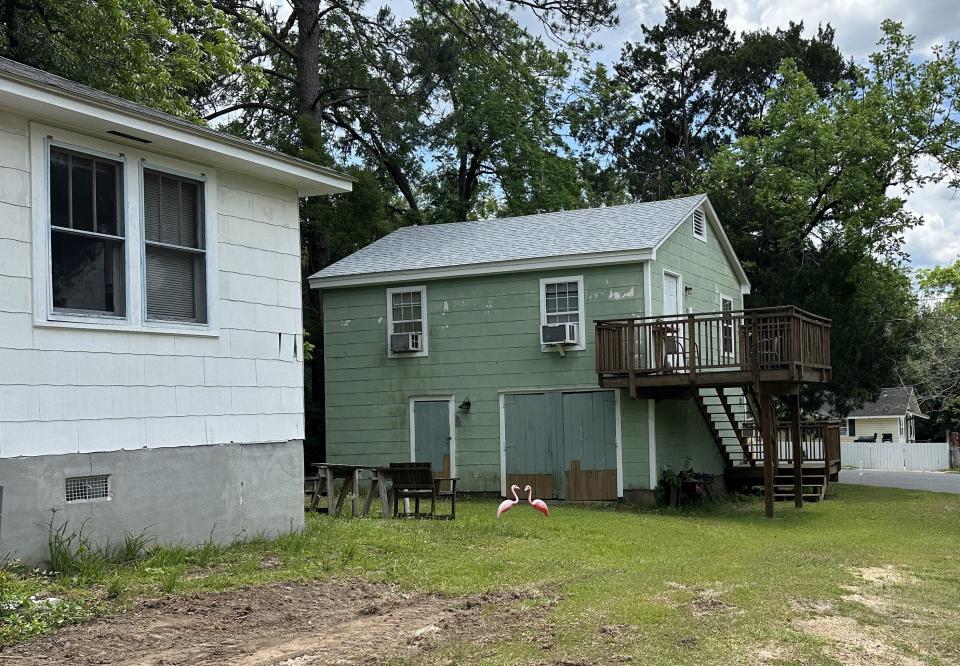City moves in right direction with discussion on ADU deregulation
Tallahassee, like cities across the nation, is facing an affordable housing crisis as rents and home prices skyrocket. A substantial contributor to higher housing prices has been the failure of cities to add enough housing to keep up with demand. Fortunately, the city of Tallahassee appears ready to address this problem by encouraging the construction of more Accessory Dwelling Units, or ADUs.
An ADU is a smaller housing unit—hence “accessory”—that sits on the same land as another house or business. The accessory unit typically shares ownership and utilities with the principal structure, or main house, on a property. More common terms for these units are granny flats, garden cottages, and accessory apartments.

ADUs make it easier for people to find better-suited places to live at a more affordable price. Nationally, household sizes have declined by over 16% between 1970 and 2012. Tallahassee, as a capital city with young urban professionals and a college-age student population exceeding 70,000, faces an acute shortage of affordable housing units for small households.
ADUs do not contribute to an area’s sprawl because they are built as infill and have a negligible visual effect on neighborhoods. ADUs also offer supplemental income to homeowners. They are cheaper to build because they are smaller than single-family detached homes and do not require additional land or major infrastructure changes.
More importantly, loosening regulations on ADUs has significantly improved housing options nationwide and helped homeowners save money.
Legislative changes at the state level in California helped drive ADU permit numbers to an eighteen-fold increase from 1,269 in 2016 to more than 23,000 by 2022. (One study estimated that as many as 60,000 new units may have been added statewide since the reform.)
In Los Angeles, regulatory reforms expanded construction opportunities across diverse areas, thus enhancing housing stock and availability. ADU permits rose from 15 in 2013 to 6,747 by 2019.
After Portland, Oregon, eased its ADU regulations and removed impact fees in 2010, saving homeowners up to $12,000, accessory unit construction jumped from an annual average of 30 in 2009 to nearly one per day by 2015.
The Tallahassee City Commission is set to vote on ADU reform at its March 27th meeting. The current development code unnecessarily restricts ADU construction to 40% of the main building's size. The new ordinance would allow for larger units and more than one accessory unit per parcel of land. The proposed reform would also loosen regulations on height, location, and ownership of utilities.
These changes will simplify ADU development and make their construction more feasible for landlords while increasing options for renters. Thus, Tallahassee’s more accommodating ADU policies could meaningfully boost housing supply and address affordability while lessening upward pressure on housing prices.
The city’s proposed ADU reforms are steps in the right direction. Ample evidence from around the nation suggests that ADU reform can be a meaningful component of an affordable housing strategy that will benefit homeowners as well as lower-income and working-class households.


Elizabeth Miller, a Public Policy major, and Jake Nair, an Economics and Psychology major, are research assistants for the Housing Affordability Initiative at the DeVoe L. Moore Center in the College of Social Sciences and Public Policy at Florida State University. More information on affordable housing strategies can be found at the Florida Policy Project Best Practices housing affordability initiative, of which this research is part.
JOIN THE CONVERSATION
Send letters to the editor (up to 200 words) or Your Turn columns (about 500 words) to letters@tallahassee.com. Please include your address for verification purposes only, and if you send a Your Turn, also include a photo and 1-2 line bio of yourself. You can also submit anonymous Zing!s at Tallahassee.com/Zing. Submissions are published on a space-available basis. All submissions may be edited for content, clarity and length, and may also be published by any part of the USA TODAY NETWORK.
This article originally appeared on Tallahassee Democrat: City moves in right direction with discussion on ADU deregulation

